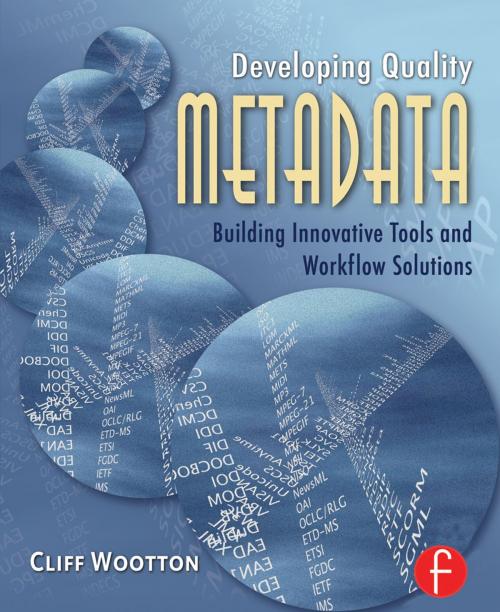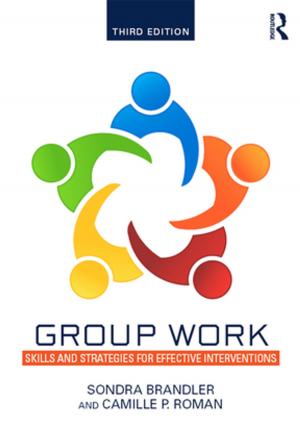Developing Quality Metadata
Building Innovative Tools and Workflow Solutions
Nonfiction, Reference & Language, Language Arts, Communication| Author: | Cliff Wootton | ISBN: | 9781136033537 |
| Publisher: | Taylor and Francis | Publication: | October 16, 2009 |
| Imprint: | Routledge | Language: | English |
| Author: | Cliff Wootton |
| ISBN: | 9781136033537 |
| Publisher: | Taylor and Francis |
| Publication: | October 16, 2009 |
| Imprint: | Routledge |
| Language: | English |
With the explosion of new audio and video content on the Web, it's more important than ever to use accurate and comprehensive metadata to get the most out of that content. Developing Quality Metadata is an advanced user guide that will help you improve your metadata by making it accurate and coherent with your own solutions. This book is designed to get you thinking about solving problems in a proactive and productive way by including practical descriptions of powerful programming tools and user techniques using several programming languages. For example, you can use shell scripting as part of the graphic arts and media production process, or you can use a popular spreadsheet application to drive your workflow. The concepts explored in this book are framed within the context of a multimedia professional working on the Web or in broadcasting, but they are relevant to anyone responsible for a growing library of content, be it audio-visual, text, or financial.
With the explosion of new audio and video content on the Web, it's more important than ever to use accurate and comprehensive metadata to get the most out of that content. Developing Quality Metadata is an advanced user guide that will help you improve your metadata by making it accurate and coherent with your own solutions. This book is designed to get you thinking about solving problems in a proactive and productive way by including practical descriptions of powerful programming tools and user techniques using several programming languages. For example, you can use shell scripting as part of the graphic arts and media production process, or you can use a popular spreadsheet application to drive your workflow. The concepts explored in this book are framed within the context of a multimedia professional working on the Web or in broadcasting, but they are relevant to anyone responsible for a growing library of content, be it audio-visual, text, or financial.















